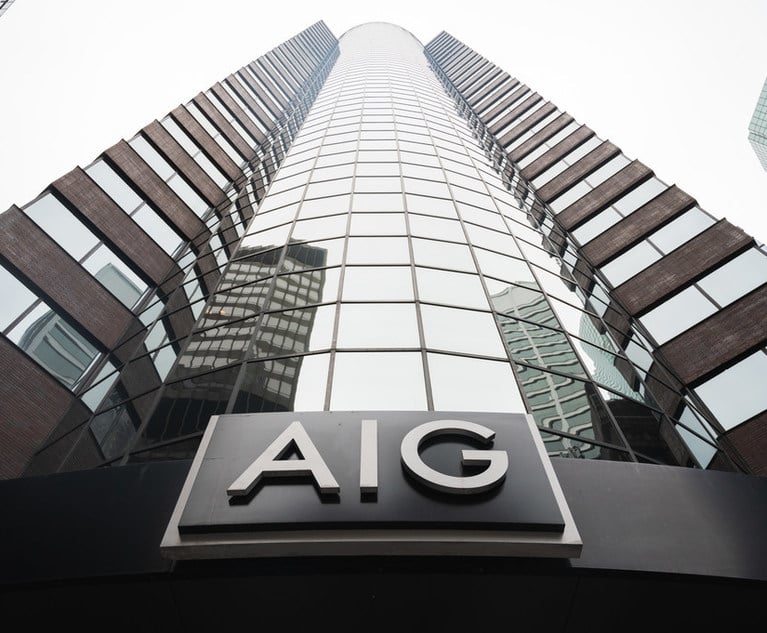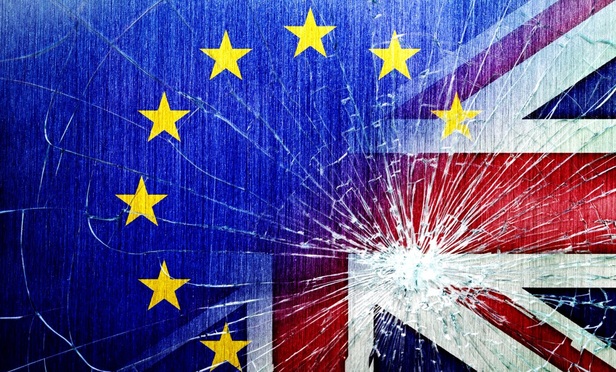75% of City partners back second Brexit referendum as 'no deal' concerns grow
Survey finds strong support for new Brexit vote amid fears over competitive disadvantage for UK firms in war for talent
August 28, 2018 at 04:08 AM
7 minute read
Three out of four City partners are in favour of a second Brexit referendum, according to a new Legal Week survey which has also found strong concerns among lawyers over the impact of a 'no deal' scenario on the legal sector.
Three-quarters (75%) of all respondents to Legal Week's latest Big Question survey said there should be a second referendum, with a similar proportion saying that Brexit will negatively affect the ability of UK law firms to attract the best talent and compete with increasingly aggressive US rivals.
More than three-quarters (78%) of respondents said they were concerned about the prospect of a no-deal Brexit, with the majority (66%) 'very' concerned.
Seventy-four percent of respondents said a no-deal Brexit will have a negative impact on law firms, and 72% said Brexit would limit the ability of UK firms to compete with US and other global competitors, of which more than half were 'very' concerned. Sixty-nine percent also said Brexit will affect the ability of UK law firms to attract the best talent.
The findings, which come just over 200 days before the UK's official departure from the EU on 29 March next year, highlight an entrenched disquiet in the City over how law firms will fare in the event the UK exits the EU either without a deal, or one that accounts adequately for the legal sector.
While conceding that a second referendum would be "inherently undesirable", Slaughter and May private equity head Jeff Twentyman said it could provide "a way out of the domestic stalemate".
"It would likely require an extension to Article 50 to implement a further referendum, and of course it also requires visibility of the deal that is being put to the vote. It is quite a challenge to see how it might work in current circumstances," he said. "But I don't hold the view it would be undemocratic. What would be undemocratic would be to have an irreversible referendum."
Similarly, Ince & Co's former EU and competition head Philippe Ruttley – now at Keystone Law – agreed that a second referendum might offer a route around the current deadlock.
"In the UK, there is a growing trend for 'future-shaping issues' [to be] decided by referendums," he said, citing the 2011 Alternative Vote referendum, as well as the Scottish independence and Brexit votes in 2014 and 2016. "Surely the future of the UK's relationship with the rest of Europe is at least as important and future-changing as the above three, so a further referendum is justified."
Respondents to the survey were also asked to identify what they think is the most crucial aspect of any Brexit deal, with one-third (33%) believing a sound deal hinges on financial institutions maintaining passporting rights, while 21% pointed to the mutual recognition of the enforcement of judgments (21%) as being the most important issue.
What would be undemocratic would be to have an irreversible referendum
Some law firms are expecting to see work levels remain high during the immediate aftermath of Brexit, in part due to an expected surge in client demand for advice on regulatory changes, and almost half of survey respondents (46%) said they expect their firm's revenues to rise in the 12 months following exit day.
However, 35% of respondents said they expected 2018-19 to be a static year for law firm growth, with one in five (19%) expecting revenues at their firm to fall. Sixty-seven percent said Brexit would be bad for both law firms and the wider economy, as opposed to just 14% who said it would be universally positive.
These concerns are backed up by a report released by the Law Society last week, which warned that the the UK legal sector could suffer a £3bn revenue hit and lose 12,000 jobs by 2025 in the event of a no-deal Brexit.
Twentyman commented: "Looking at the facts, there's no cogent, objective case I have seen that demonstrates anything other than a distant promise of future benefits from leaving. There are no facts you can count on to support the case to leave."
One partner who requested to remain anonymous said: "Brexit is a disaster for my career. I appreciate there is an increase in the amount of work due to the uncertainty it creates, but there will not be an increase in most clients' legal budgets, so – as with the rest of the UK – we have the difficult combination of increased work, but reduced fees and wages."
Ruttley added: "The 2016 referendum was supposed to be advisory, as the European Union Referendum Act 2015 makes clear, but it has subsequently been twisted and used by the Brexiteers as a mandatory command from the electorate to the government, and a mandate that cannot be revised.
"That is surely nonsense, legally, as no parliament can bind a future parliament – a future, later parliament can change past laws and reverse past votes, as otherwise democracy died on 23 June 2016. Indeed, the 2015 Act made no provision for future effects on future parliaments as it could not do so under UK constitutional law."
Besides "the damage it would do to the UK economy", Ruttley also lamented the cultural and economic impact Brexit would have, suggesting the UK could "revert back to its stodgy, insular, past self".
Parliament can change past laws and reverse past votes, as otherwise democracy died on 23 June 2016
However, not all respondents were quite so downbeat. As Fieldfisher competition partner John Cassels commented: "Lawyers depend on a buoyant economy. In the run-up, Brexit means uncertainty, which means a lot of work for lawyers."
He did concede, however, that in the longer term, things "may be different", adding: "Nervousness is warranted. It could be a very significant change. But I think it will be a fudge and that it may not make much of a difference. I think a bespoke deal is likely, and that the differences between the UK and the EU will diminish, so I'm not overly concerned."
Cassels – the head of Fieldfisher's Brexit taskforce – also suggested the City is well set to weather any ill effects, given its inherent qualities: "I think as a common law jurisdiction, we have a lot of advantages. The London legal market is so competitive that it drives innovation and solutions more than in mainland Europe.
"There had always been uncertainties. Before the Brexit vote, there was already the eurozone, and the City was under threat by EU regulations. All Brexit does is introduce more uncertainties into the political and economic environment, and makes it more febrile."
One other anonymous respondent to the survey summed up the frustrations of many: "The government has basically already set the professional services sector up for a hard Brexit, as we are not part of any Chequers deal even if it were to be agreed – which it won't.
"I am shocked how little campaigning there is by our professional bodies who represent us, and how we seem as a profession to be sleepwalking into a Brexit abyss with little or no struggle against it. Where is the collective voice of our profession on this issue?"
This content has been archived. It is available through our partners, LexisNexis® and Bloomberg Law.
To view this content, please continue to their sites.
Not a Lexis Subscriber?
Subscribe Now
Not a Bloomberg Law Subscriber?
Subscribe Now
NOT FOR REPRINT
© 2025 ALM Global, LLC, All Rights Reserved. Request academic re-use from www.copyright.com. All other uses, submit a request to [email protected]. For more information visit Asset & Logo Licensing.
You Might Like
View All
UK Solicitors Regulator Sets Unusual Practice Conditions on AIG In-House Lawyer

Insurance Practice DWF Takes Team of 53 Lawyers From Australian Firm
2 minute read
A&O Shearman, White & Case Advise on €1.2B Public Takeover of German Steel Giant Salzgitter
3 minute read
Resolute Mining Appoints London General Counsel—CEO Resigns Following Foreign Detention
Trending Stories
- 1Public Notices/Calendars
- 2Wednesday Newspaper
- 3Decision of the Day: Qui Tam Relators Do Not Plausibly Claim Firm Avoided Tax Obligations Through Visa Applications, Circuit Finds
- 4Judicial Ethics Opinion 24-116
- 5Big Law Firms Sheppard Mullin, Morgan Lewis and Baker Botts Add Partners in Houston
Who Got The Work
J. Brugh Lower of Gibbons has entered an appearance for industrial equipment supplier Devco Corporation in a pending trademark infringement lawsuit. The suit, accusing the defendant of selling knock-off Graco products, was filed Dec. 18 in New Jersey District Court by Rivkin Radler on behalf of Graco Inc. and Graco Minnesota. The case, assigned to U.S. District Judge Zahid N. Quraishi, is 3:24-cv-11294, Graco Inc. et al v. Devco Corporation.
Who Got The Work
Rebecca Maller-Stein and Kent A. Yalowitz of Arnold & Porter Kaye Scholer have entered their appearances for Hanaco Venture Capital and its executives, Lior Prosor and David Frankel, in a pending securities lawsuit. The action, filed on Dec. 24 in New York Southern District Court by Zell, Aron & Co. on behalf of Goldeneye Advisors, accuses the defendants of negligently and fraudulently managing the plaintiff's $1 million investment. The case, assigned to U.S. District Judge Vernon S. Broderick, is 1:24-cv-09918, Goldeneye Advisors, LLC v. Hanaco Venture Capital, Ltd. et al.
Who Got The Work
Attorneys from A&O Shearman has stepped in as defense counsel for Toronto-Dominion Bank and other defendants in a pending securities class action. The suit, filed Dec. 11 in New York Southern District Court by Bleichmar Fonti & Auld, accuses the defendants of concealing the bank's 'pervasive' deficiencies in regards to its compliance with the Bank Secrecy Act and the quality of its anti-money laundering controls. The case, assigned to U.S. District Judge Arun Subramanian, is 1:24-cv-09445, Gonzalez v. The Toronto-Dominion Bank et al.
Who Got The Work
Crown Castle International, a Pennsylvania company providing shared communications infrastructure, has turned to Luke D. Wolf of Gordon Rees Scully Mansukhani to fend off a pending breach-of-contract lawsuit. The court action, filed Nov. 25 in Michigan Eastern District Court by Hooper Hathaway PC on behalf of The Town Residences LLC, accuses Crown Castle of failing to transfer approximately $30,000 in utility payments from T-Mobile in breach of a roof-top lease and assignment agreement. The case, assigned to U.S. District Judge Susan K. Declercq, is 2:24-cv-13131, The Town Residences LLC v. T-Mobile US, Inc. et al.
Who Got The Work
Wilfred P. Coronato and Daniel M. Schwartz of McCarter & English have stepped in as defense counsel to Electrolux Home Products Inc. in a pending product liability lawsuit. The court action, filed Nov. 26 in New York Eastern District Court by Poulos Lopiccolo PC and Nagel Rice LLP on behalf of David Stern, alleges that the defendant's refrigerators’ drawers and shelving repeatedly break and fall apart within months after purchase. The case, assigned to U.S. District Judge Joan M. Azrack, is 2:24-cv-08204, Stern v. Electrolux Home Products, Inc.
Featured Firms
Law Offices of Gary Martin Hays & Associates, P.C.
(470) 294-1674
Law Offices of Mark E. Salomone
(857) 444-6468
Smith & Hassler
(713) 739-1250









